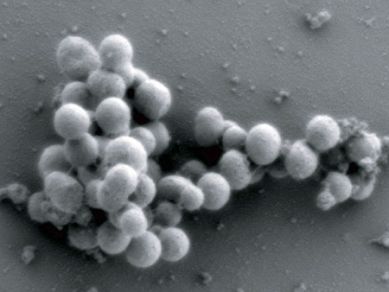Vatican: First Synthetic Cell Heeds Caution

Vatican officials have hailed the creation of the world's first synthetic cell as a great scientific achievement, but are urging scientists to proceed with caution on its implementation.
Scientists announced on Thursday that they had successfully created the first living cell out of artificial DNA. The study was led by Craig Venter of the J. Craig Venter Institute, who has been working to create a synthetic cell since 1995.
"It's a great scientific discovery. Now we have to understand how it will be implemented in the future," Monsignor Rino Fisichella, head of the Vatican's Pontifical Academy for Life, told the Associated Press.
"If we ascertain that it is for the good of all, of the environment and man in it, we'll keep the same judgment," he said. "If, on the other hand, the use of this discovery should turn against the dignity of and respect for human life, then our judgment would change."
Venter's discovery began with the successful creation of a synthetic genome from the four chemical parts of DNA, named A, T, C and G. He then integrated the genome into a cell where it successfully directed the organism to grow and multiply.
Potential benefits already being discussed from Venter's discovery include accelerating vaccine development and producing alternative fuels.
Some, however, have expressed concern that the discovery might tempt scientists to play God.
"Pretending to be God and parroting his power of creation is an enormous risk that can plunge men into a barbarity," Bishop Domenico Mogavero told Italian newspaper La Stampa, adding that scientists "should never forget that there is only one creator: God."
"In the wrong hands, today's development can lead tomorrow to a devastating leap in the dark," he said.
Meanwhile, Dr. John Haas of the National Catholic Bioethics Center has disputed that Venter's discovery is actually a life form.
"They are doing significant modifications to the biological matter, but it isn't truly artificial life. Obviously when one engenders a new life form one can't be entirely certain what it's going to do, how it's going to reproduce," he told BBC. "One can modify and manipulate already existing biological material. No-one [is] able to create life from scratch."
Dr. Carlo Bellieni, an Italian neonatal specialist, told the Vatican's L'Osservatore Romano that, "The weight of DNA, in the end, is great and great are the expectations in genetic science."
"It's about uniting courage with caution: actions taken on genomes can - we hope - cure, but they are going to touch a very fragile terrain in which environment and manipulation play a role that shouldn't be undervalued," he said.